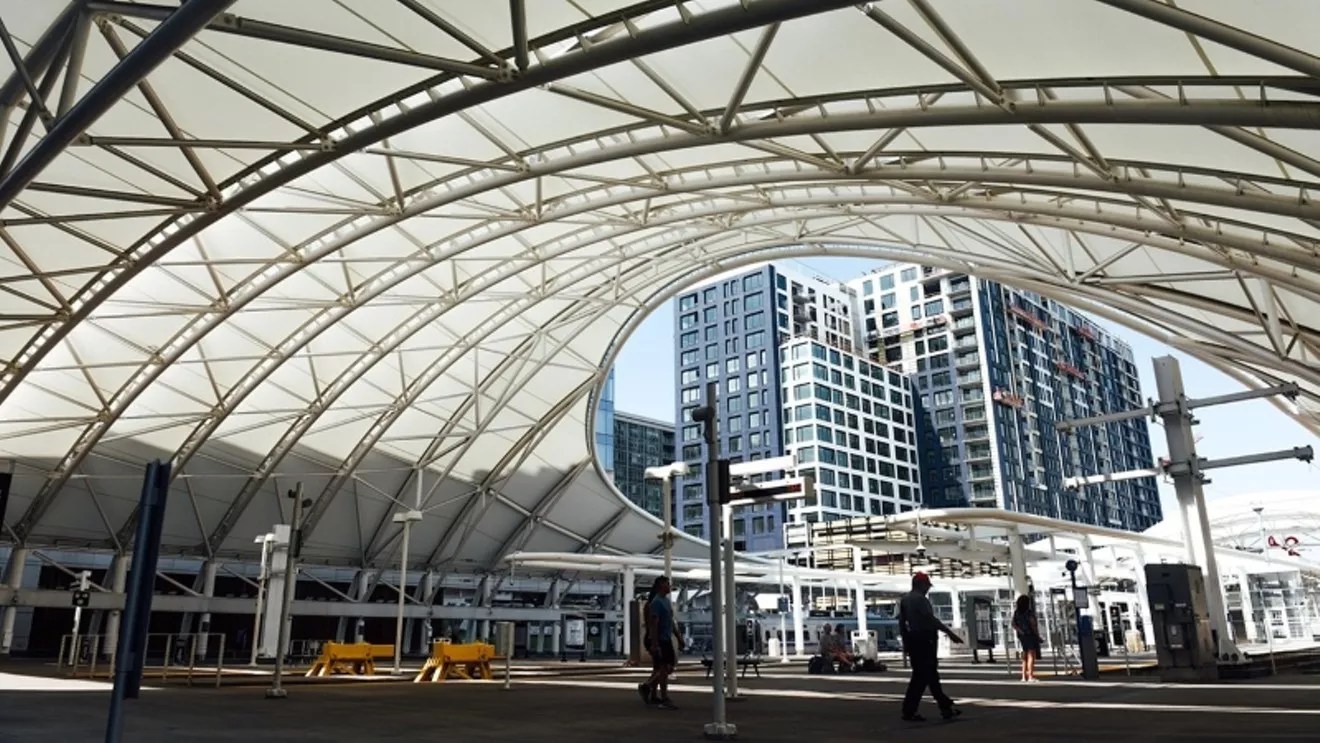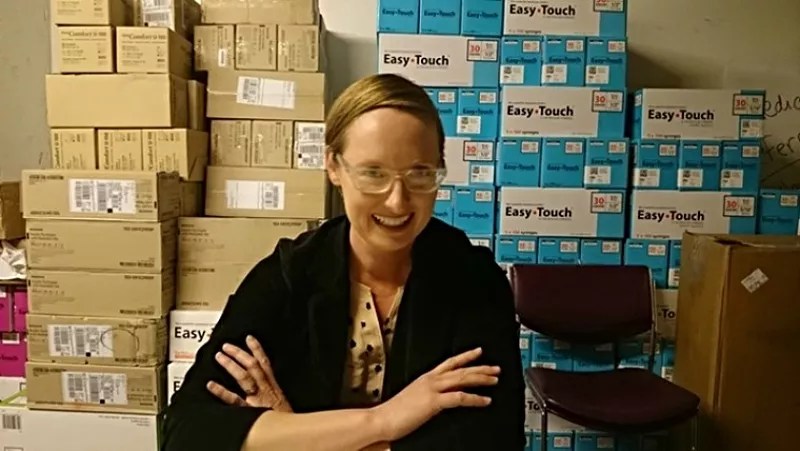
Photo by Kenzie Bruce

Audio By Carbonatix
In March, after the Denver Police Department conducted a sweep around Union Station that rounded up 43 people as part of an area crackdown, Harm Reduction Action Center executive director Lisa Raville criticized the tactic as a doomed return to failed policies that criminalized drug use, and predicted that it would succeed only at forcing many of those gathering around the iconic location to go somewhere else.
“This has been done for years on the Platte River, at Civic Center Park, at Denver Central Library – and now at Union Station,” Raville said at the time. “Basically, what they’re doing is shifting the drug trade around.”
Six months later, the prognostications offered by Raville, whose center includes a syringe-exchange program and assorted educational and health-related efforts aimed at a wide variety of drug users, have proven to be stunningly accurate. The DPD has arrested or cited well over 1,000 people in the Union Station area since the beginning of the year, following complaints from RTD and others, but few of those summoned to court qualify as violent criminals. Indeed, a recent Westword update about the individuals caught up in the initial sweep revealed that only three defendants received any jail time (the longest sentence was ninety days), while the others faced minor charges that have been quietly resolved, dismissed or remain in limbo.
Meanwhile, many Union Station habitués have started hanging out elsewhere, with the most prominent choice being another RTD facility, Civic Center Station, and other spots near Colfax and Broadway. That intersection was specifically mentioned by city officials during an August 24 update to a Denver City Council committee about security at Union Station. Note that the closure of Civic Center Park two years ago was one of the developments cited for sending people to the area around Union Station.
Additionally, Raville says she’s also seen an increasing number of homeless individuals gathering in the vicinity of 16th Street and sections of Broadway south of Civic Center Station.
“There’s a patch of grass near the Circle K at Tenth and Broadway – and that’s all a lot of people are looking for,” she says. “But they’re going to have a lot of problems when winter comes and it gets colder.” Under such circumstances, she points out that many of her clients use meth simply to stay awake; they fear that they’ll freeze to death if they fall asleep. That store is only a few blocks from the center’s office, at 112 East Eighth Avenue.

Lisa Raville is executive director of the Harm Reduction Action Center.
Photo by Michael Roberts
Heavy-handed measures like those employed at Union Station don’t alleviate such issues, Raville argues. Many folks who seek shelter there “don’t own anywhere to live, and they’re always at risk of trespassing or encountering law enforcement” – and that could result in big trouble for those who have warrants against them as a result of previous citations at Union Station, even if the original offense was relatively trifling.
As a result of these factors, “you’re in and out of incarceration and your friends are dying of preventable overdoses – and overdoses are the number-one cause of death for our unhoused neighbors,” Raville continues. “Plus, unhoused people are at higher risk of housed people attacking them. People used to feel safe sleeping in the downtown area, but once LoDo really started happening, we started hearing about people who’d been drinking thinking it was funny to kick them. And a lot of violence that happens against the homeless doesn’t get reported to the police.”
Raville hopes such matters will be tackled in a better way by Denver’s next mayor. The election to choose the successor to Michael Hancock, who’s term-limited, is scheduled for April 2023, and she urges the targets of police actions like those at Union Station to make their voices heard.
“Criminal incarceration has been used for years against those who use drugs or are unhoused, and people often act like those two groups don’t vote,” she says. “But we encourage people to be part of community decisions and to address ballot initiatives that affect their lives. They can register to vote and use the center’s address – and we’re gearing up for April. We know the mayor is important, but city council is up, and there could be shake-ups in the cabinet and in law enforcement,” particularly given Denver Police Chief Paul Pazen’s recent retirement announcement.
“I want to see what the plan will be for the new mayor,” Raville adds. “During the pandemic, and before that, too, the city acted like sweeps of encampments were going to lead to something. But they haven’t. It appears their plan was just to move people from one place to another – Union Station, encampments, wherever. And that’s still what’s happening.”